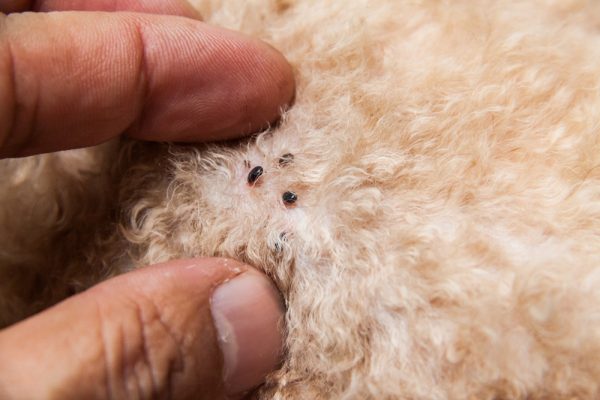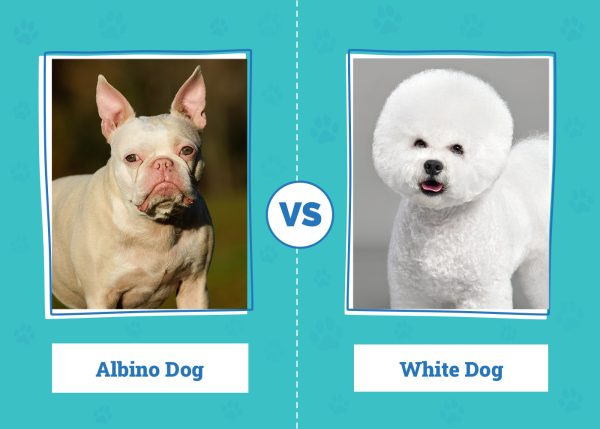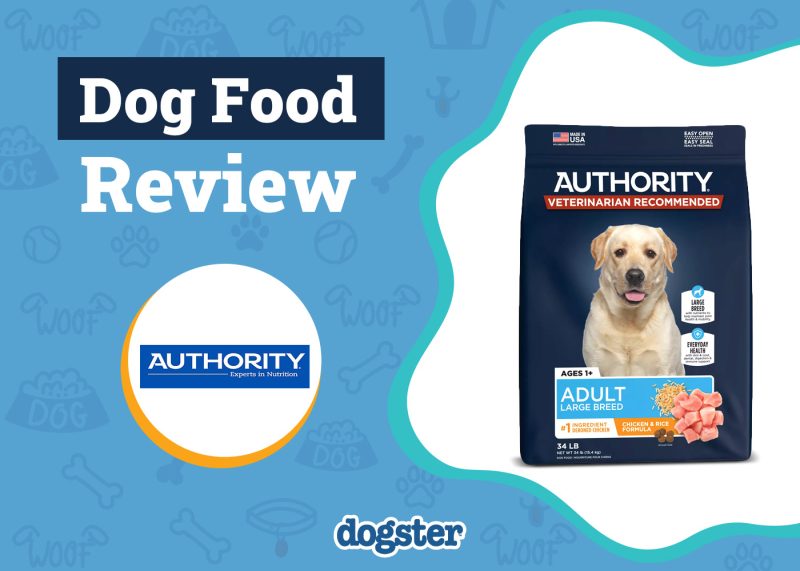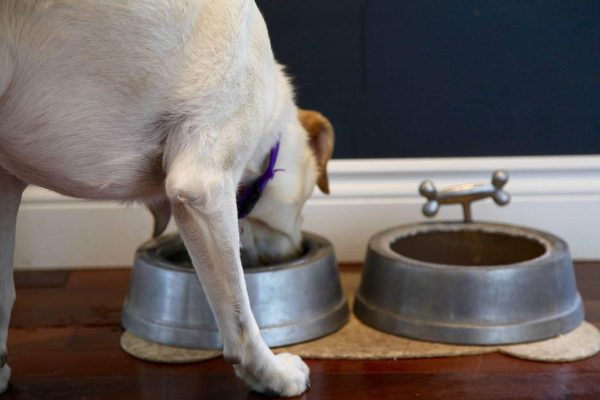Can dogs get sexually transmitted diseases as humans do? Unfortunately, the answer is yes. There are a fair few canine-specific diseases that dogs pass on when they mate with other dogs.
Dogs do not get the same sexually transmitted diseases as humans. Human sexually transmitted diseases are usually spread by direct contact with an infected person’s genitals or sexual intercourse. Sexually transmitted diseases that affect dogs can be spread by other means, not just mating or direct contact with genitals.

Common Canine Sexually Transmitted Infections
The main ways dogs pick up sexually transmitted infections include:
- Sexual intercourse: This is direct contact of infected areas during mating and transfer of bodily fluids. This allows for the transmission of some infections, such as Brucella canis and Canine herpesvirus.
- Non-sexual interaction: This can be something as simple as sharing a water or food bowl, being exposed to bodily fluids like discharge, licking and sniffing infected urine, play fighting and roughhousing together, and sharing toys. These can all allow for the transmission of infections like canine transmissible venereal tumors and Brucella canis.
There are a few common infections that dogs can experience.
1. Canine herpesvirus
Canine herpesvirus is a systemic disease that often causes death in puppies. The virus can become hidden or latent in dogs, so they may be passing it on without any clinical signs apparent. It is readily passed to developing fetuses when they are in the mother’s uterus.
The clinical signs in an adult dog are difficult to spot because they are general and non-specific. They include upper respiratory infection signs, such as sneezing and coughing. The dog can also have eye infections with redness, discharge, and corneal ulcers present.
- Nasal discharge
- Breathing issues
- Failure to thrive
- Reduced appetite
- Lethargy
- Diarrhea
- Whining/crying
- Seizure activity
- Sudden death
Puppies that have mild infections and survive can go on to develop neurological issues and blindness in later life. If your dog becomes stressed or has a concurrent illness, this can cause them to have recurring clinical signs if their immune system is already under strain.
In puppies, the disease is incubated for 5 days; after this period, the clinical signs develop, or the puppy unfortunately dies. Canine herpesvirus does not cause a herpes infection in humans.

2. Canine Brucellosis
Canine brucellosis is a highly contagious bacterial infection caused by Brucella canis. It usually develops in the dog’s reproductive tract. In male dogs, Brucella affects parts of the testicles. Male dogs often get swollen testes and a rash on the skin over their scrotum. It can make dogs infertile; if the infection is left untreated, the testicles eventually shrivel up.
The bacteria affect the uterus in female dogs, and there will be vaginal discharge present. It can cause fertility issues, and it can also cause abortions, depending on how far along in pregnancy the dog is when they become infected. There is a risk the dog will give birth to stillborn puppies or puppies that fail to thrive and pass away when they are a few days old.
Enlarged lymph nodes can be seen in both males and females. The bacteria can affect other parts of the body and the reproductive tract, including the brain, heart, kidneys, and eyes. Brucella can be transmitted to humans via direct contact with infected tissues or bodily fluids, which means it is a zoonotic disease. Extra care must be taken when handling infected dogs.
3. Canine Transmissible Venereal Tumor (CTVT)
CTVT is a malignant cancer that is unique because it is infectious. The cancer is spread between dogs during sexual intercourse when skin-to-skin contact is made. They can also be spread by direct contact with discharge or oozing fluids from active sores.
Cells from tumors present in an infected dog transfer to the other dog, and they become infected. Any dog can be affected, but CTVT is most commonly seen in crossbreed dogs that have not been neutered or stray dogs. It causes lesions on the genitals of infected dogs. These tumors arise from overgrowth of a type of cell called a histiocyte, located in the skin.
Frequently, lesions affect the penis and the vulva, though they can become established in other places, such as the mouth. Owners may notice thickened areas of skin, bruised areas, and bleeding. Dogs may start to lick themselves incessantly. Sometimes there are cauliflower-like lesions, which can become ulcerated and get infected too.

4. Bacterial Vaginosis
Bacterial vaginosis occurs when there is an overgrowth of the normal bacteria in the vagina area. Signs include:
- Foul-smelling discharge
- Itching
- Licking area
- Irritation
- Pain when mating
- Pain when passing urine
- Grey/white discharge
Bacterial vaginosis can cause breeding difficulties in dogs. It is usually spread during sexual intercourse when an infected dog makes contact with the genitals of another dog.
If you’re concerned about your dog’s health we suggest you speak to a vet.
If you need to speak with a vet but can't get to one, head over to PangoVet. It's our online service where you can talk to a vet online and get the advice you need for your dog — all at an affordable price!

Treatment for Sexually Transmitted Diseases in Dogs
The exact treatment for sexually transmitted diseases in the dog depends on the underlying cause of the disease and how severe the infection is. Treatment is tailored to the individual dog and their circumstances.
The Canine herpesvirus does not have a specific treatment. However, infected dogs can benefit from supportive management to help their immune systems fight the infection. Antiviral medication can be used, and antibiotics may be indicated to fight secondary bacterial infections. Intravenous fluid therapy is often required to correct or prevent dehydration. It is important to ensure the infected dog is kept warm and as comfortable as possible. Some dogs, especially young puppies, need nutritional support. Isolating infected dogs is necessary to prevent the spread of the disease.
Canine brucellosis is a bacterial infection. Antibiotics are indicated for treatment, and a long course lasting 6–8 weeks is required. Neutering the dog is also recommended to prevent the disease from spreading further. People must take extra care when handling a dog with brucellosis, as it is a zoonotic disease, which means it can be passed to humans.
Canine-transmissible venereal tumors usually require surgical removal of the tumors present. This can be followed by chemotherapy if necessary. Supportive care may also be indicated, depending on the severity of the disease and any side effects present. The earlier this condition is diagnosed, the better the prognosis is.
Bacterial vaginosis is usually treated with a course of antibiotics. This can be given via the oral route or applied topically to the affected area. Your vet may need to take samples to guide the choice of the antibiotic used. It is also important in the management of bacterial vaginosis that your dog is discouraged from licking and rubbing themselves and that the areas around their genitals are kept clean.
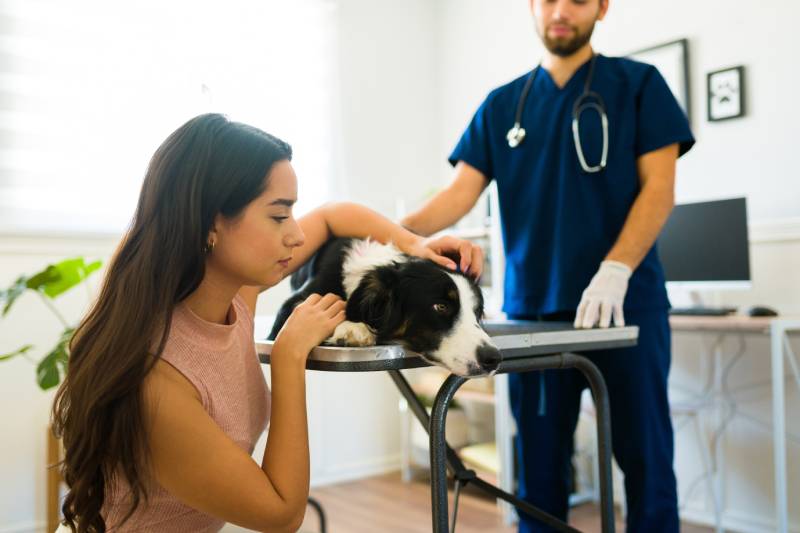
How to Prevent Your Dog From Getting Sexually Transmitted Diseases
Tips for preventing your dog from contracting sexually transmitted diseases include the following.
1. Have your dog spayed or castrated
A spay is a procedure where the female reproductive organs, including the uterus and ovaries, are removed completely. Castration is the removal of the testicles in male dogs. Neutering your dog is by far the most effective way of preventing them from getting sexually transmitted diseases and unwanted pregnancies.
2. Be a responsible breeder
If you are going to breed your dog, do everything within your power to ensure that you are practicing responsible breeding. Only breed healthy dogs that have had all the necessary genetic testing carried out. Follow strict hygiene practices while mating the dogs and afterward.
3. Avoid unnecessary matings
If you are not planning on mating your unneutered dog, do not let them have contact with other dogs. This is especially important if you have an unspayed female dog that you know is in season, as other male dogs will be able to smell her and will try to mate with her if you are out in public. Keep your dog on a leash while on walks, and do not let them play unsupervised with other dogs.
4. Practice good hygiene
Wash your hands thoroughly after handling your dog or any other dog. Extra care must be taken if the dog has visible signs of sexually transmitted diseases.

Conclusion
Dogs can experience a range of different sexually transmitted diseases. Some can have devastating effects and can even be fatal. If you think your dog might be suffering from a sexually transmitted disease, you must get in contact with your vet immediately. Your vet will be able to diagnose the infection and prescribe effective treatment.
In most cases, if owners are vigilant and veterinary attention is sought promptly, sexually transmitted diseases can be managed very well.
Featured Image Credit: smrm1977, Shutterstock




